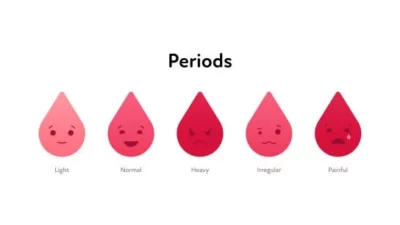Some people wake up and brush their teeth without thinking twice. Others stare at the ceiling wondering how they’ll make it through the next hour. When mental health takes a nosedive, even basic tasks can feel like a mountain. For those stuck in that fog—too tired to call anyone, too anxious to walk into a clinic, too overwhelmed to explain what’s wrong—virtual mental health care might be more than a convenience. It might be the lifeline that gets them to tomorrow.
The idea of managing serious mental health struggles online used to sound like a half-measure. But the world has shifted. Technology didn’t just give us delivery apps and remote work; it gave people a real shot at healing from the privacy of their bedrooms. The tools are more advanced now. And more human. What matters most is not whether someone sits in a waiting room or logs into a video session—it’s that they get help, and that they get it before the spiral gets worse.
Why Virtual Mental Health Care Works for People at Their Lowest
When someone feels mentally unwell, the steps needed to find care can seem like part of the problem. Booking appointments, driving across town, waiting in sterile offices—none of it feels doable when your energy is drained by anxiety or depression. That’s where virtual mental health care comes in. The appeal isn’t just convenience. It’s the fact that someone can connect with a therapist, psychiatrist, or support group from their couch, without having to change out of pajamas.
For many, this removes the biggest hurdle: showing up, which is essential in regular mental health treatment. Virtual platforms offer scheduled therapy, emergency sessions, medication management, group discussions, and even full-day programs for people in deeper distress. Some people only need a quick check-in to get back on track. Others may need regular care over a longer stretch. And it’s all available without needing to sit in traffic or navigate waiting rooms filled with strangers.
There’s also something to be said for privacy. Mental health stigma is still very real, and not everyone wants to be seen walking into a clinic, especially in smaller communities. Online options create space to heal without broadcasting the struggle. Whether someone is dealing with panic attacks, deep depression, or constant intrusive thoughts, having an outlet where they feel safe matters. And when someone finds the right match—whether that’s a therapist who really listens or a psychiatrist who finally gets the medication right—it doesn’t matter how the care is delivered. It matters that the healing begins.
Virtual Programs That Actually Treat the Deeper Stuff
There’s a big difference between a casual therapy app and an actual clinical program. People struggling with serious symptoms don’t just need a friendly chat—they need structured treatment. And that’s where intensive virtual support makes a difference. High-quality programs exist now that offer clinical care for people with real symptoms, real diagnoses, and real setbacks.
These programs are designed by professionals who understand how layered mental health can be. They create tailored plans that combine individual therapy, psychiatry, group sessions, and wellness support. And the results? People often show the same improvement as they would in an in-person setting. One example of this is like a virtual IOP in California, Maine or anywhere else, which combines clinical rigor with accessibility. It’s not therapy-lite. It’s a serious level of care that just happens to come through a screen.
People recovering from trauma, addiction, or severe depression can attend five or six sessions a week without ever leaving home. It makes treatment feel less like an interruption to life and more like a part of it. That kind of access can shorten suffering by months. It also gives people a way to ask for help sooner—before things go off the rails completely.
What Happens When the Pain Runs Deeper Than Talk Therapy?
Some mental health struggles live on the surface. Others are buried under years of neglect, trauma, or medical complications. When someone is experiencing chronic emotional pain or layered psychological issues, it’s easy to assume that virtual care wouldn’t be enough. But more and more, clinicians are seeing the opposite.
Online settings can actually encourage people to open up. They’re in their own environment, often surrounded by familiar objects, pets, or routines. That comfort can unlock conversations that feel too vulnerable in a cold office. And with licensed therapists trained in complex trauma, grief, anxiety, and even rare mental health conditions, people often get the same depth of care they would in person—sometimes more.
Some programs include trauma-informed yoga, mindfulness coaching, and peer support, in addition to the clinical work. When someone has been through something overwhelming—like psychological trauma after an accident or years of untreated PTSD—the consistency of virtual care can help stabilize them. Instead of waiting a week between sessions, they can process things in real time. And if they’re not up to speaking one day? Many programs allow for written communication too. Healing doesn’t always have to be loud or dramatic. Sometimes, it’s quiet and steady, and that counts too.
Making the Call—Even When You Don’t Feel Ready
The hardest part about getting help is often admitting that it’s time. Denial can wear a thousand masks—exhaustion, irritability, avoidance, overworking, doomscrolling. People convince themselves it’s “not that bad” or that “it’ll pass.” But there’s a difference between a rough day and not being able to get through the week without feeling like you’re drowning. That’s when it’s worth reaching out.
Virtual care has removed so many of the traditional excuses. No car? No childcare? No time off work? You don’t need any of it. With a laptop or phone, people can access support that used to be off-limits due to money, schedule, or distance. That’s not just a silver lining. That’s a life raft.
Getting help online doesn’t mean someone’s weak. It means they’ve decided to fight. And sometimes, that fight starts with something as small as clicking “join session” while still in bed.
What to Remember When the Fog Rolls In
There’s no perfect time to fix your mental health. Life rarely hands you a clean window of peace where everything feels manageable. Most people start the process in the middle of the chaos, when it feels like nothing is working and no one gets it. That’s okay.
Virtual care isn’t about pretending things aren’t hard. It’s about getting real support when you’re in the thick of it. You don’t have to be “ready.” You just have to be willing to show up—even if that means showing up in your most broken form. Healing can begin right there.

Lexy Summer is a talented writer with a deep passion for the art of language and storytelling. With a background in editing and content creation, Lexy has honed her skills in crafting clear, engaging, and grammatically flawless writing.



